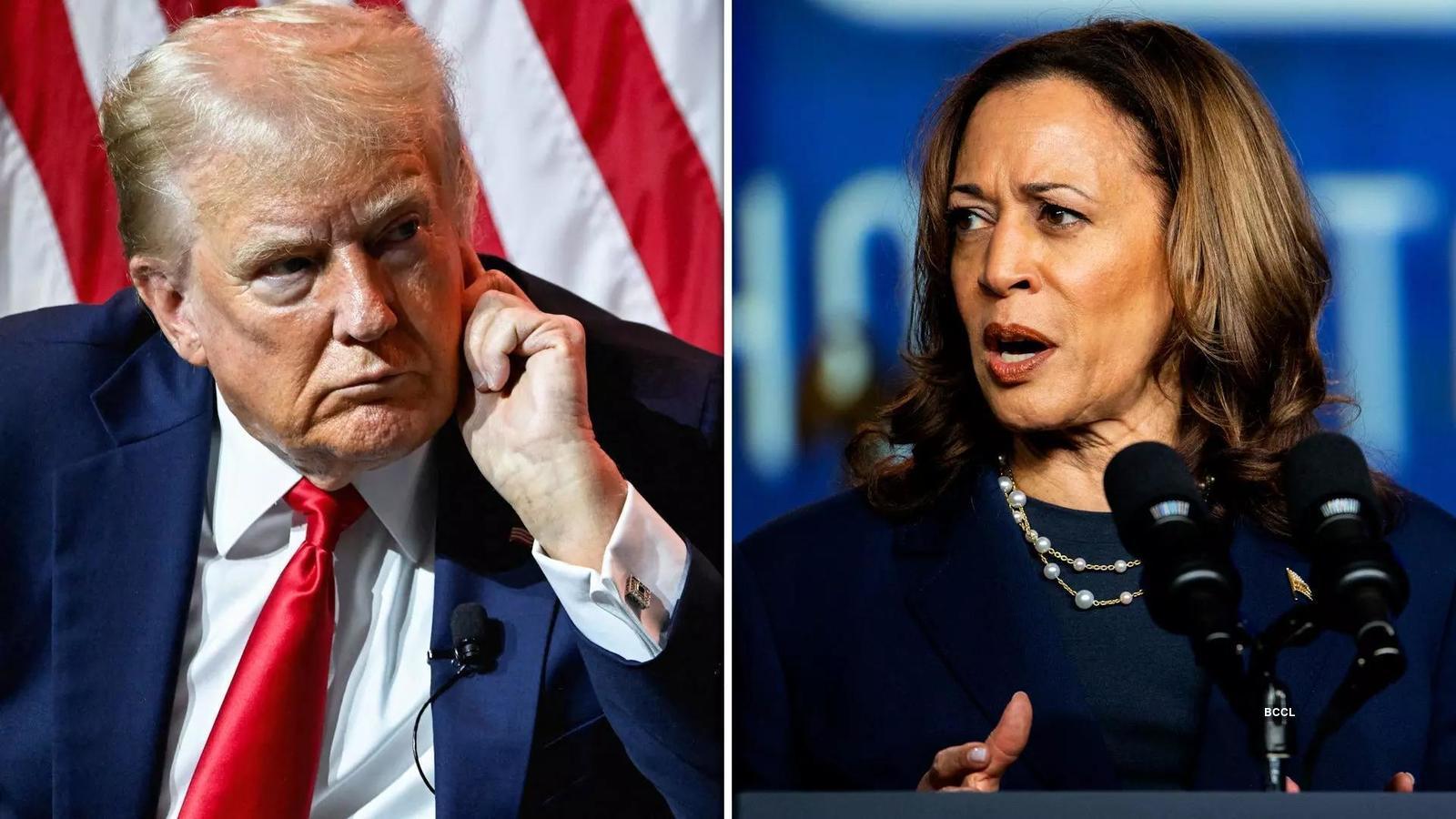Reality-TV Ringleading vs. the TikTok Ticket: Trump vs. Harris in the Modern Media Arena
The 2024 presidential campaign is shaping up to be more than just a contest of policies and ideologies. It’s a clash between two starkly different approaches to media and communication, embodied by Donald Trump and Kamala Harris. Trump’s style harkens back to the era of broadcast reality television, while Harris’s campaign thrives in the fast-paced, ever-evolving world of online virality. This article explores how these contrasting media strategies reflect the broader cultural and political divides in the United States.

The Trump Doctrine: Reality-TV as Political Theater
Donald Trump’s rise to political prominence can be traced back to his defining moment as a presidential candidate: the infamous escalator ride in Trump Tower. This carefully staged event set the tone for Trump’s entire political career, which has been characterized by a reality-TV approach to governance. Trump, who made a name for himself as the star of “The Apprentice,” has always understood the power of media spectacle. His campaign events, rallies, and even his social media posts are meticulously crafted to entertain, provoke, and capture the attention of the masses.
Trump’s communication style is deeply rooted in the principles of broadcast reality TV, where narratives are tightly controlled, and the storyline is dictated by a central figure—in this case, Trump himself. His supporters view him as the ultimate showman, a leader who can command the stage and deliver a performance that resonates with his audience. This approach has allowed Trump to maintain a strong connection with his base, who see him as a larger-than-life figure capable of cutting through the noise and delivering a clear, consistent message.
Harris’s Strategy: Harnessing the Power of Online Virality
On the other hand, Kamala Harris represents a new breed of political communication, one that is deeply intertwined with the dynamics of online culture. Harris’s defining moment as a candidate wasn’t a planned media event but rather an organic online phenomenon. When British pop star Charli XCX posted a TikTok video referencing Harris in a playful, irreverent way, it sparked a wave of memes, remixes, and social media posts that propelled Harris into the spotlight.
Harris’s campaign has capitalized on these moments of online virality, understanding that in today’s media landscape, power lies in the hands of the many rather than the few. Her campaign strategy is less about crafting a singular narrative and more about facilitating a conversation among her supporters, who then amplify her message across social media platforms. This approach reflects the decentralized, democratized nature of the internet, where content is created, shared, and reshaped by countless individuals.
Communication Philosophies: Top-Down Control vs. Bottom-Up Engagement
At its core, the 2024 presidential race between Trump and Harris is a battle between two radically different communication philosophies. Trump’s approach is rooted in top-down control, where the narrative is carefully scripted and directed by a single, authoritative figure. This method has its advantages, as it allows for a consistent message and a clear, cohesive brand.
In contrast, Harris’s campaign embraces a bottom-up engagement model, where the narrative is shaped by the crowd. Her supporters play an active role in creating and spreading content, often in ways that the campaign itself didn’t anticipate. This approach is more fluid and responsive, allowing Harris to tap into the energy and creativity of her base. However, it also carries risks, as the campaign can’t always control how the message is received or interpreted.
The Impact of Meme Culture on Political Campaigns
Meme culture has become a powerful force in modern political campaigns, and both Trump and Harris have utilized it in different ways. For Trump, memes are a tool for reinforcing his brand and mocking his opponents. His supporters create and share memes that highlight his strengths and ridicule his enemies, often using humor and irony to make a point.
For Harris, memes are a way to connect with younger voters and engage with online communities. Her campaign has embraced meme culture, recognizing that it can be a powerful tool for building a sense of identity and belonging among supporters. Groups like “Swifties for Kamala,” started by Gen Z fans of pop star Taylor Swift, have used memes and social media to rally support for Harris, creating a grassroots movement that feels authentic and organic.
The Risks and Rewards of Going Viral
While going viral can be a powerful way to gain attention and build momentum, it also comes with risks. In Harris’s case, the viral moments that have propelled her campaign have sometimes been unpredictable and difficult to control. A meme or social media post can quickly take on a life of its own, leading to unintended consequences or backlash.
Trump, too, has experienced the downside of virality. His attempts to engage with younger audiences on platforms like TikTok have sometimes backfired, making him appear out of touch and out of sync with the culture. For both candidates, the challenge is to harness the power of online virality while avoiding its pitfalls.
The Future of Political Communication
As the 2024 election approaches, the battle between Trump and Harris will likely be seen as a defining moment in the evolution of political communication. Trump’s reality-TV approach represents the culmination of decades of media-driven politics, where the candidate’s persona is carefully crafted and controlled. Harris’s campaign, on the other hand, signals a shift towards a more decentralized, participatory model, where the power to shape the narrative lies with the people.
Whatever the outcome of the election, it’s clear that the way candidates communicate with voters has changed forever. The lines between entertainment, politics, and social media have blurred, creating a new landscape where the rules are constantly evolving. In this new era, the ability to adapt and respond to the ever-changing media environment will be crucial for any candidate hoping to succeed on the national stage.




